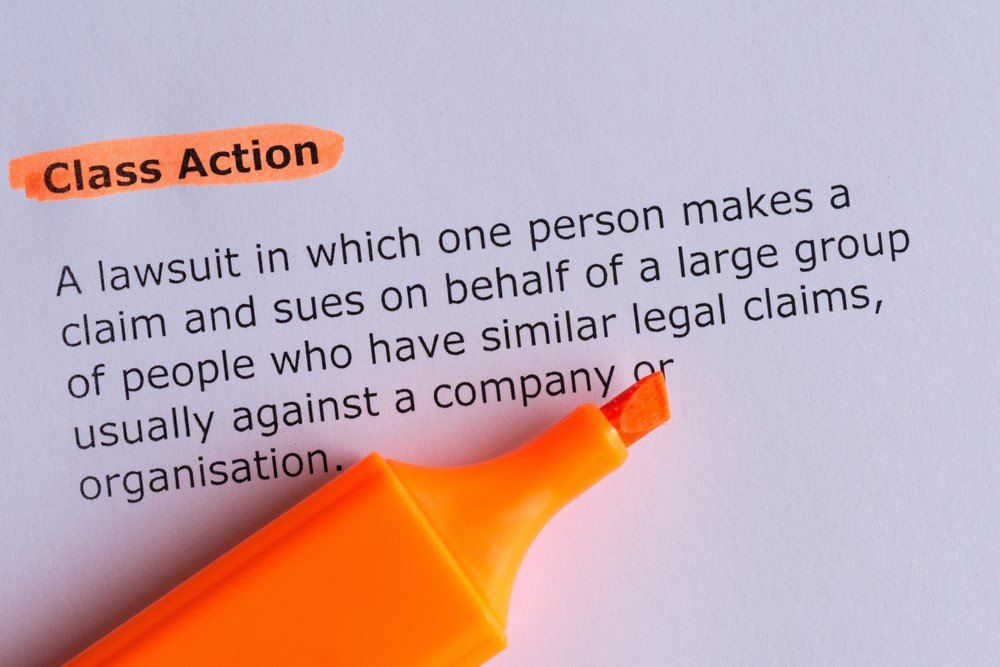The Archer-Daniels-Midland Class Action Lawsuit Unpacked: Stay Educated
The Archer-Daniels-Midland Class Action Lawsuit Unpacked: Stay Educated
Blog Article
Debunking Class Action Legal Actions: A Closer Check Out Legal Proceedings
Course action suits can be daunting and complex, typically shrouded in a veil of secret for those strange with the lawful process involved. From understanding the requirements for class action qualification to the function of course reps, and from the procedure of course qualification to the resolution of these lawsuits, we will unravel the complexities and dropped light on the inner functions of this legal system.
Comprehending Course Action Suits
Comprehending Class Action Suit requires an extensive evaluation of the legal proceedings associated with cumulative lawsuits. Course activity claims are a kind of legal action where a team of people with comparable insurance claims or grievances join together to initiate a lawsuit versus an usual offender. This kind of lawsuits permits people with restricted resources to jointly look for justice, as it integrates the stamina of multiple specific insurance claims into a single lawsuit.
The process starts with the recognition of a lead plaintiff or course agent who submits the preliminary grievance in behalf of the whole class. The court then establishes whether the instance satisfies the demands for class qualification, that include commonality, numerosity, typicality, and competence of representation. If certified, the court alerts potential course members, giving them a possibility to opt-out if they want to pursue their cases individually.
As soon as the class is certified, the lawsuits proceeds with various phases, including exploration, motion technique, and, if needed, test. The result of the lawsuit can lead to a judgment or a negotiation, which is binding on all course participants unless they select to opt-out. Course action claims can encompass a vast array of lawful problems, such as customer security, protections fraud, work discrimination, and environmental damage.
Recognizing the nuances of class activity suits is important for both complainants and defendants associated with collective litigation. It needs an extensive understanding of the lawful requirements for accreditation, the legal rights and commitments of class members, and the prospective advantages and threats associated with defending or pursuing versus course activity cases.
Identifying Class Action Eligibility
To establish whether a lawsuit qualifies as a class activity legal action, particular standards should be satisfied. These requirements are made to ensure that the situation can adequately represent the rate of interests of a large group of individuals that have actually endured similar harm or have actually been affected by the same issue. The essential variable in identifying class activity qualification is the existence of an usual inquiry or concern that affects all potential class participants.
Firstly, a class action claim calls for numerosity, which means there should be a considerable variety of prospective class members involved. This guarantees that a course activity is an effective method to solve the cases of a large group of individuals, as opposed to having each person file an individual lawsuit.
Secondly, there must be commonality amongst the insurance claims of the potential class participants. This means that there must be a common inquiry of regulation or truth that is central to the instance. A course action may not be ideal. if each prospective class participant's claim is unique and unassociated to the others.

The Duty of Course Rep
Class representatives play an important role in class activity lawsuits by standing for the interests of the entire class. These individuals are selected from within the class to function as the public face of the claim and are in charge of choosing on part of all course participants. The role of class representatives includes numerous duties and duties throughout the legal procedures.
Among the main duties of course reps is to provide information and support to their fellow class members. They function as a point of get in touch with and interaction in between the course participants and the lawyers representing them. This consists of maintaining the course participants notified around crucial updates, addressing their inquiries, and addressing any concerns they may have.
Course agents likewise have the responsibility to actively join the litigation process (Archer-Daniels-Midland class action lawsuit). This entails functioning carefully with the attorneys to create lawful techniques, gathering proof, and supplying statement if necessary. They have to be proactively associated with all aspects of the instance to make sure that the most effective interests of the whole class are stood for
Moreover, class representatives are liable for authorizing settlements or various other resolutions reached in the legal action. They need to carefully assess the terms of visit the site the negotiation and make a choice that is in the ideal rate of interest of the whole class. This decision-making procedure requires mindful consideration and appointment with the class participants.
The Process of Course Accreditation
The procedure of accrediting a class in a course action legal action involves a comprehensive analysis of certain standards to identify if the instance meets the required needs for class accreditation. Course certification is a vital step in the litigation procedure as it determines whether a suit can continue as a course action, allowing a big team of people with similar claims to be stood for jointly by one or a couple of individuals.
To acquire course qualification, the complainant must demonstrate that the suggested course satisfies particular requirements. These requirements generally include numerosity, commonality, typicality, and competence of depiction. Numerosity calls for that the course is so large that joinder of all members is impractical. Commonality requires that there are inquiries of regulation or fact common to the class members. Typicality requires that the insurance claims or defenses of the class agents are regular of those of the class. Competence of representation makes sure that the class representatives will rather and sufficiently secure the passions of the course.
If the suggested class fulfills the needed requirements,The court will certainly look at these criteria and the plaintiff's proof top article to figure out. The court may additionally take into consideration other factors, such as whether a course action is the premium technique to fix the dispute and whether the course is sufficiently natural.

Once the court gives class certification, the lawsuit can continue as a class action, permitting the complainants to collectively look for alleviation and potentially receive a judgment or negotiation that benefits the entire course.
Dealing With Class Action Legal Actions
Once class qualification has actually been given, the next action in resolving a class action claim is to browse the procedure of lawsuits or negotiation negotiations. Litigation refers to the legal procedures in court, where the complainant's lawyer offers proof and arguments to support their claims, and the accused's attorney counters with their own proof and disagreements. This procedure can entail numerous phases, such as pretrial motions, discovery, and test.
On the various other hand, negotiation arrangements entail conversations in between the events to get to an equally appropriate resolution without mosting likely to test. BioVie class action lawsuit. Settlement provides may be made at any kind of phase of the lawsuits procedure, and if both events concur, a settlement agreement is blog here gotten to. This arrangement typically outlines the terms of the negotiation, consisting of any type of monetary payment, injunctive relief, or other remedies. Once the negotiation is wrapped up, it is offered to the court for authorization.
Conclusion
To conclude, class action lawsuits play a vital role in providing justice and settlement to big teams of individuals who have actually been harmed by the very same entity. By accrediting a class and assigning class agents, the legal procedure becomes extra accessible and reliable for the plaintiffs. Managing these suits can be a facility and prolonged procedure, but it is crucial in holding companies answerable for their actions and making certain fair end results for all affected celebrations.
From understanding the requirements for course action eligibility to the duty of class agents, and from the procedure of course accreditation to the resolution of these claims, we will decipher the details and shed light on the inner functions of this lawful mechanism. The essential aspect in recognizing class action eligibility is the visibility of an usual question or issue that impacts all possible course members.
If each potential class participant's case is unique and unrelated to the others, a course activity might not be appropriate.
Class agents play a vital duty in course activity lawsuits by representing the interests of the whole course.As soon as course qualification has actually been granted, the next step in dealing with a class action suit is to navigate the process of litigation or settlement negotiations.
Report this page